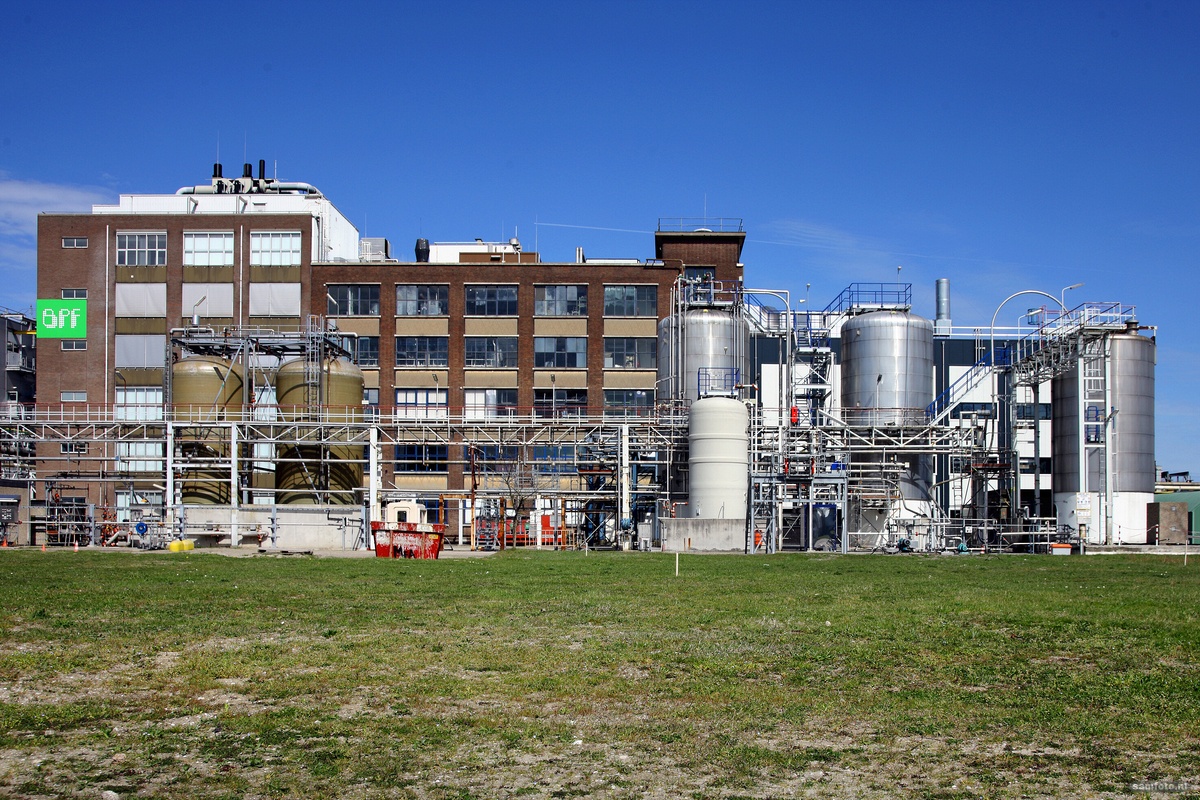DSM and TU Delft’s Bioprocess Pilot Facility went bankrupt at the end of last year. The curator expects to hear soon whether the facility will start over or be sold.
The BPF building in 2015. (Photo: Sam Rentmeester)
The Bioprocess Pilot Facility (BPF), a biotech pilot plant, was opened in 2012 as a joint project by TU Delft (19%), DSM (50%), and lactic acid producer Corbion (31%). Housed in a former reprocessing plant on the Biotech Campus Delft (previously the DSM premises), the BPF is open for universities and companies that want to scale up highly promising biotechnological processes.
But at the end of November last year, the Dutch news service RTL Nieuws reported that the pilot plant was bankrupt. They gleaned this from a notice in the Centraal Insolventieregister. One of the 36 employees responded with surprise and disappointment in the article. Corbion had already withdrawn as a shareholder at the beginning of 2022, but the PlanetB.io Foundation had joined. ‘BPF’s bankruptcy came as a surprise,’ stated RTL. ‘The last annual account showed that the shareholders had pumped millions into the company.’
One month later, the Curator, Mr Emile ten Berge LL.M., published his first bankruptcy report. RTL reads that over the last two years, BPF made a loss of almost EUR 10 million. ‘How BPF can make such big losses 10 years after its founding is not clear.’
Ten Berge will report on the settlement every three months in the register. The pressing issue now is to check for opportunities for a new start, he says on the phone. He expects to receive news on this prior to his next report.
“If we went around the premises with a new entity, it would not remain a secret for long,” says the Curator who expects to receive news about a potential new start for BPF by the end of the month.
When asked, Professor of Industrial Microbiology Jack Pronk (Faculty of Applied Sciences) emails the following. ‘I hope a way will be found to keep a facility open for ‘pilot fermentation’ for TU Delft, particularly for start-up biotech companies (such as the fast-growing TU Delft PlanetB.io start-up).’
Getting clarity about how the company went bust and making arrangements with creditors will take a year, expects the Curator.
Do you have a question or comment about this article?
j.w.wassink@tudelft.nl


Comments are closed.